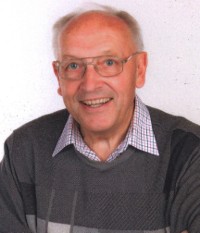
Winfried Josef Huppmann, one of the most prominent powder metallurgists and a pioneer of sintering studies, passed away on 13 August 2016, after a prolonged illness.Winfried Huppmann was born on 22 January 1945, in Scheibbs, Lower Austria, and grew up in the city of Tulln, near Vienna. After passing primary and secondary school, he studied physics at the University of Vienna, in 1971, earning a PhD with the highest possible mark, ‘sub auspiciis praesidentis’ (graduation in presence of the President of the Republic). Then he moved to the industry, working at Sherritt Gordon Co., Canada, for about 2 years. In 1973, he returned to Europe, joining the Powder Metallurgy Laboratory of the Max Planck Institute for Metals Research (MPI-PML) in Stuttgart, Germany, which at that time was headed by Professor Günter Petzow. There, Winfried worked on liquid phase sintering, doing pioneering work on the investigation of rearrangement and densification processes. Based on this work, he obtained the Habilitation (venia docendi) at Technische Universität Wien, Vienna, with the support of Profs. Richard Kieffer, Benno Lux and Gerhard Jangg. From that time, Winfried was affiliated professor at TU Wien and regularly held courses there.
In 1979, he joined Sintermetallwerk Krebsöge (now GKN Sinter Metals) in Radevormwald, Germany, as head of R&D. His activities there included, e.g. the introduction of powder forging of connecting rods and production of tool steel parts by vacuum sintering. In 1986, Winfried was one of the organisers of PM’86, the 1986 Powder Metallurgy World Congress in Düsseldorf, still one of the most successful PM congresses ever. In 1987, he was offered the position as Head R&D and member of the Board at HILTI AG, Schaan, Liechtenstein. There, his responsibilities far exceeded powder metallurgy, including all research and innovation of this really global company. However, he remained strongly interested in PM and was a frequent delegate and speaker at PM congresses. In 2000, he moved within HILTI to become head of strategic market observation, and in 2005, he retired from HILTI. However, he remained highly active esp. in the cultural field, organising, e.g. the ‘LiGiTa’, the Liechtenstein Guitar Days, and even leant to play guitar. He also served as inaugural president of the foundation ‘International Music Academy’ which supports gifted young musicians in their career. In 2012, the Liechtenstein government appointed him president of ‘Kulturstiftung Liechtenstein’, the national cultural heritage foundation of this country.
Winfried Huppmann was widely respected for his scientific performance as well as his management skills and also as an academic teacher who motivated generations of students to work in powder metallurgy. Furthermore, he was a highly communicative person who was one of the key members of the Gemeinschaftsausschuß Pulvermetallurgie, the PM association of the German-speaking countries, for many years, and co-founded the Hagen Symposium on Powder Metallurgy. In 2003–2004, he also served as President of DGM, the German Society for Materials.
Winfried Huppmann’s accomplishments are reflected by numerous awards. In 1990, he received the Ivor Jenkins Award of the Institute of Metals, London, and in 1991, he was awarded the Skaupy lecture, the highest honour of Gemeinschaftsausschuß Pulvermetallurgie. In 2008, he was appointed honorary member of the DGM, and in the same year, he received the Distinguished Service Award of the European Powder Metallurgy Association.
The funeral was held on 20 August 2016, in his hometown of Eschen, Liechtenstein, in the presence of his family – Winfried is survived by his four children and four grandchildren – as well as many former colleagues and friends. His former boss Professor Günter Petzow gave a comprehensive appreciation of Winfried’s contribution to science and technology.
Winfried will be gratefully remembered by all members of the powder metallurgy community who had the chance to meet him personally, to cooperate with him or simply to learn from his work.
